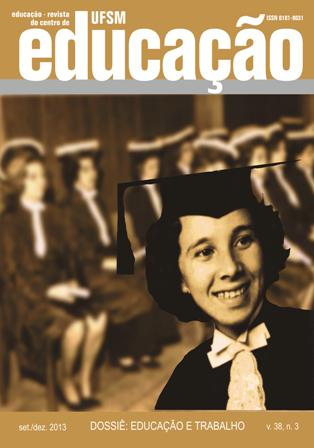Oedipus king: preparing man for the polis
DOI:
https://doi.org/10.5902/198464447000Keywords:
Sophocles, Man, Education, Polis.Abstract
Having Sophoclean play Oedipus King as a frame of reference, the purpose of this paper is to discuss the educative proposal conceived to the Greek Man as preparation for life in the polis. Although not intentionally, Sophocles pointed out an ideal of Man which, in his perspective, would fulfill Greek societal demands of that time. Such society was divided between myth and rationality and, as a result, Man found Himself in conflict and lacking direction for His life. Given that, Oedipus’ character represented the ideal behavior of that society, and it also made it possible for citizens to reflect and to discuss social, economic and political transformations taking place at that period. Thus Sophocles came up with a hero who was an educational model and a citizen’s as well. Furthermore, such hero differed from that one of the archaic Greek thought.Downloads
Published
How to Cite
Issue
Section
License
Declaration of originality
We declare that all articles present in the journal Educação (UFSM) are originals and were not submitted for publishing on any other publication, as a whole or a fraction. We also declare that, after being published by Educação (UFSM), a paper will not be submitted to another journal within two years. After this time, our journal transfers the publishing rights to the authors, with a permit granted by the Editorial Council.
We also acknowledge that the originals’ submission to Educação (UFSM) implies on a transference of copyright for physical and digital publishing to the journal. In case of noncompliance, the violator will receive sanctions and penalties predicted by the Brazilian Copyright Protection Law (n. 9610, dated 19/02/98).
Attribution 4.0 International (CC BY 4.0)
This license lets others remix, transform, and build upon the material for any purpose, even commercially, and copy and redistribute the material in any medium or format.

This work is licensed under a Creative Commons Attribution 4.0 International (CC BY 4.0)






